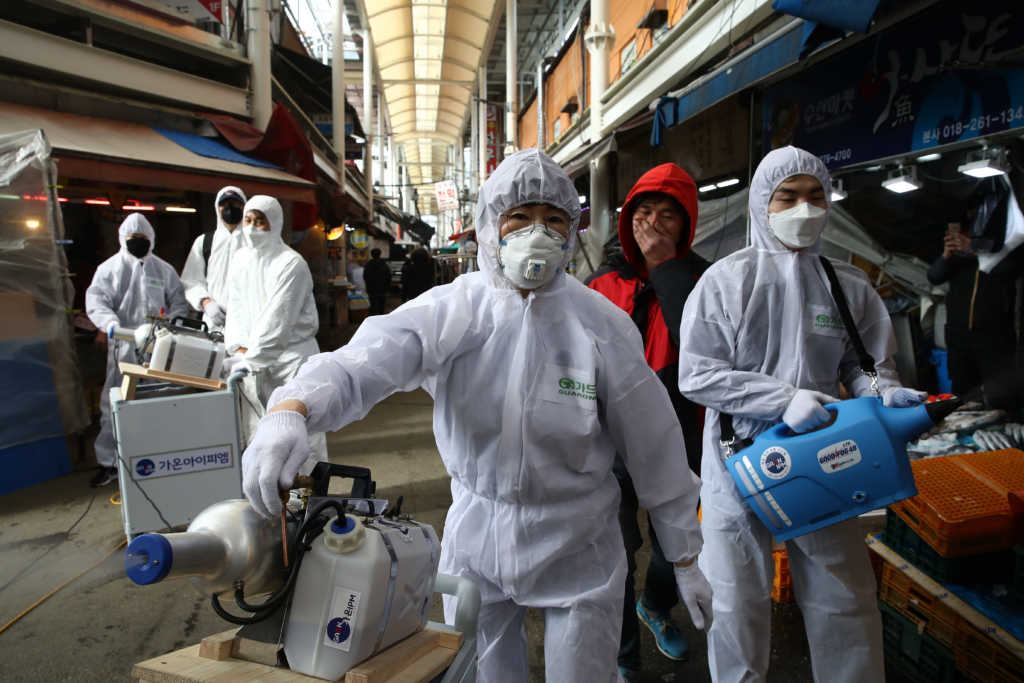Outside of China, South Korea is home to the largest number of coronavirus diagnoses in the world. Within a week, the number of confirmed cases of COVID-19 catapulted from a few dozen to more than 1,000.
Some have been wondering how such a leap could happen in such a short period of time, but as more information comes in, one potential culprit is becoming increasingly likely, according to numerous reports.
Thankfully, researchers with the Korea Centers for Disease Control and Prevention have been working around the clock to learn more about COVID-19, how to cure it, and how to stop the illness from continuing to spread.
In the meantime, though, several journalists and local authorities have invested time into figuring out what exactly might have caused that major spike in COVID-19 cases in South Korea.
One major theory is that a fringe Christian church could have unintentionally spread the illness throughout the Asian country.
The uptick in cases, according to Business Insider, correlates with dozens of diagnoses among the congregants of the Temple of the Tabernacle of the Testimony, a branch of the controversial Shincheonji Church of Jesus, which the South Korean government has described as a “cult.”
Lee Man-hee founded the church, which claims to have some 200,000 adherents around the world, in 1984. Members of Shincheonji believe the church is a “nation of God, … created here on earth as it is in heaven” and are convinced Lee is their “promised pastor” who will live forever. They also believe Lee is carrying the mantle of Jesus Christ and will take 144,000 people with him to heaven on Judgement Day, according to The Guardian.
One 61-year-old woman, now known as Patient 31, was the country’s 31st case and is associated with the radical congregation in the city of Daegu, about 150 miles south of Seoul. While it’s not clear how she contracted COVID-19, Patient 31 was confirmed by the church to have attended services in Daegu, where a large concentration of cases now exist.
The KCDC is considering the incident a “super-spreader” event.
Followers of Shincheonji have been asked by Daegu Mayor Kwon Young-jin “to stay home, isolated from their families.” The church, though, for its part has pushed back on the government’s “cult” characterization and has denied its role as the “main culprit” in the spread of COVID-19.
Pastor Shin Hyun-uk, a former member of Shincheonji, where he served for 20 years, is not convinced the cult-like congregation isn’t responsible.
Shin, who now leads a counseling center to help people leave the cult, told NPR members are packed into study rooms “like bean sprouts” and are encouraged to “shout out ‘amen’ after every sentence the pastor utters, pretty much every few seconds,” which, he added, they do “at the top of their lungs,” often sending saliva into the air, a likely transmitter of COVID-19.
Because the church is so secretive, given its reputation, members often proselytize in secret, never revealing their identities to those with whom they speak. Their anonymous operations, Shin explained, “make[s] it impossible for others to be cautious and self-quarantine themselves” from Shincheonji members who might have been exposed to the virus.
One Shincheonji member argued it’s “quite unfair to pin” the spread of the illness on the church because “there are so many Chinese traveling to South Korea.” The controversial church has since said in a statement it has halted all its activities and is sanitizing all its meeting spaces.
South Korea, it should be noted, has a vibrant religious makeup. So church participation and attendance is very important. Roughly 30% of the country’s 50 million people identify as Christians. South Korea is also responsible for sending the second-largest number of missionaries overseas, according to Quartz. While the government has encouraged churches to cancel services and implored its Christian citizens to skip religious observances, many have refused to do so.
Please continue to pray for those infected with the coronavirus and for the medical experts around the world working to address this spreading illness.



